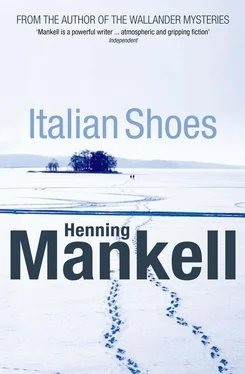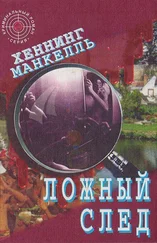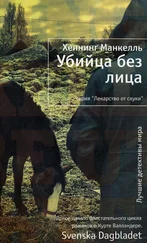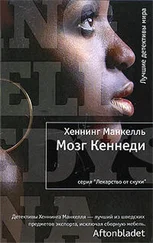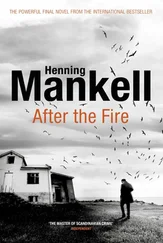In my life I have come across many people who weep. During my years as a doctor, I frequently met people who were dying, and others who had been forced to accept that a loved one was dying. But their tears never emitted a perfume reminiscent of my mother’s. On the way to the restaurant, my father explained to me that she was oversensitive. I still can’t recall what my response was. What could I say? My earliest memories are of my mother crying hour after hour lamenting the shortage of money, the poverty that undermined our lives. My father didn’t seem to hear her weeping. If she was in a good mood when he came home, all was well. If she was in bed, surrounded by the scent of lavender, that was also good. My father used to devote his evenings to sorting out his large collection of tin soldiers, and reconstructing famous battles. Before I fell asleep, he would often lie down beside me on my bed, stroke my head, and express his regret at the fact that my mother was so sensitive that, unfortunately, it was not possible to present me with any brothers or sisters.
I grew up in a no-man’s-land between tears and tin soldiers. And with a father who insisted that, as with an opera singer, a waiter required decent shoes if he was to be able to do his job properly.
It turned out in accordance with his wish. We went to the restaurant. A waiter came to take our order. My father asked all kinds of complicated and detailed questions about the veal he eventually ordered. I had plumped for herring. My summers spent in the archipelago had taught me to appreciate fish. The waiter left us in peace.
This was the first time I had ever drunk a glass of wine. I was intoxicated almost with the first sip. After the meal, my father smiled and asked me what career I intended to take up.
I didn’t know. He’d invested a lot of money enabling me to stay on at school. The depressing atmosphere and shabbily dressed teachers patrolling the evil-smelling corridors had not inspired me to think about the future. It was a matter of surviving from day to day, preferably avoiding being exposed as one of those who hadn’t done their homework, and not collecting a black mark. Each day was always very pressing, and it was impossible to envisage a horizon beyond the end of term. Even today, I can’t remember a single occasion when I spoke to my classmates about the future.
‘You’re fifteen now,’ my father said. ‘It’s time for you to think about what you’re going to do in life. Are you interested in the culinary trade? When you’ve passed your exams you could earn enough washing dishes to fund a passage to America. It’s a good idea to see the world. Just make sure that you have a decent pair of shoes.’
‘I don’t want to be a waiter.’
I was very firm about that. I wasn’t sure if my father was disappointed or relieved. He took a sip of wine, stroked his nose, then asked if I had any definite plans for my life.
‘No.’
‘But you must have had a thought or two. What’s your favourite subject?’
‘Music.’
‘Can you sing? That would be news to me.’
‘No, I can’t sing.’
‘Have you learned to play an instrument, without my knowing?’
‘No.’
‘Then why do you like music best?’
‘Because Ramberg, the music teacher, pays no attention to me.’
‘What do you mean by that?’
‘He’s only interested in pupils who can sing. He doesn’t even know the rest of us are there.’
‘So your favourite subject is the one that you don’t really attend, is that it?’
‘Chemistry’s good as well.’
My father was obviously surprised by this. For a brief moment he seemed to be searching through his memory for his own inadequate schooldays, and wondering if there had even been a subject called chemistry. As I looked at him, he seemed bewitched. He was transformed before my very eyes. Until now the only things about him that had changed over the years were his clothes, his shoes and the colour of his hair (which had become greyer and greyer). But now something unexpected was happening. He seemed to be afflicted by a sort of helplessness that I’d never noticed before. Although he’d often sat on the edge of my bed or swum with me out here in the bay, he was always distant. Now, when he was exhibiting his helplessness, he seemed to come much closer to me. I was stronger than the man sitting opposite me, on the other side of the white tablecloth, in a restaurant where an ensemble was playing music that nobody listened to, where cigarette smoke mixed with pungent perfumes, and the wine was ebbing away from his glass.
That was when I made up my mind what I would say. That was the very moment at which I discovered, or perhaps devised, my future. My father fixed me with his greyish-blue eyes. He seemed to have recovered from the feeling of helplessness that had overcome him. But I had seen it, and would never forget it.
‘You say you think that chemistry is good. Why?’
‘Because I’m going to be a doctor. So you have to know a bit about chemical substances. I want to do operations.’
He looked at me with obvious disgust.
‘You mean you want to cut people up?’
‘Yes.’
‘But you can’t be a doctor unless you stay on at school longer.’
‘That’s what I intend doing.’
‘So that you can poke your fingers around people’s insides?’
‘I want to be a surgeon.’
I’d never thought about the possibility of becoming a doctor. I didn’t faint at the sight of blood, or when I had an injection; but I’d never thought about life in hospital wards and operating theatres. As we walked home that April evening, my father a bit tipsy and me a fifteen-year-old suffering from his first taste of wine, I realised that I hadn’t only answered my father’s questions. I’d given myself something to live up to.
I was going to become a doctor. I was going to spend my life cutting into people’s bodies.
There was no post today.
There was no post yesterday either. But Jansson, the postman, does come to my island. He doesn’t bring me junk mail. I’ve forbidden him to do so. Twelve years ago I told him not to bother making the journey if he was only bringing junk mail. I was tired of all the special offers on computers and knuckles of pork. I told him I didn’t need it — people who were trying to control my life by pestering me with special offers. Life is not about cut prices, I tried to explain to him. Life is basically about something more important. I don’t know what exactly but, nevertheless, one must believe that it is important, and that the hidden meaning is something more substantial than discount coupons and scratch cards.
We quarrelled. It was not the last time. I sometimes think it is our anger that binds us together. But he never came with junk mail after that. The last time he had a letter for me, it was a communication from the local council. That was over seven years ago, an autumn day with a fresh gale blowing from the north-east, and low tide. The letter informed me that I had been allocated a plot in the cemetery. Jansson claimed that all local residents had received a similar letter. It was a new service: all tax-paying residents should know the location of their eventual grave, in case they wished to go to the cemetery and find out who they would have as neighbours.
It was the only real letter I have received in the last twelve years, apart from dreary pension documents, tax forms and bank statements. Jansson always appears at around two in the afternoon. I suspect he has to come out this far in order to be able to claim full travel expenses from the Post Office for his boat or his hydrocopter. I’ve tried to ask him about that, but he never answers. It could even be that I’m the one who makes it practical for him to continue as postman. That the authorities would have cancelled deliveries altogether but for the fact that he heaves to at my jetty three times a week in the winter months, and five times a week in the summer.
Читать дальше
